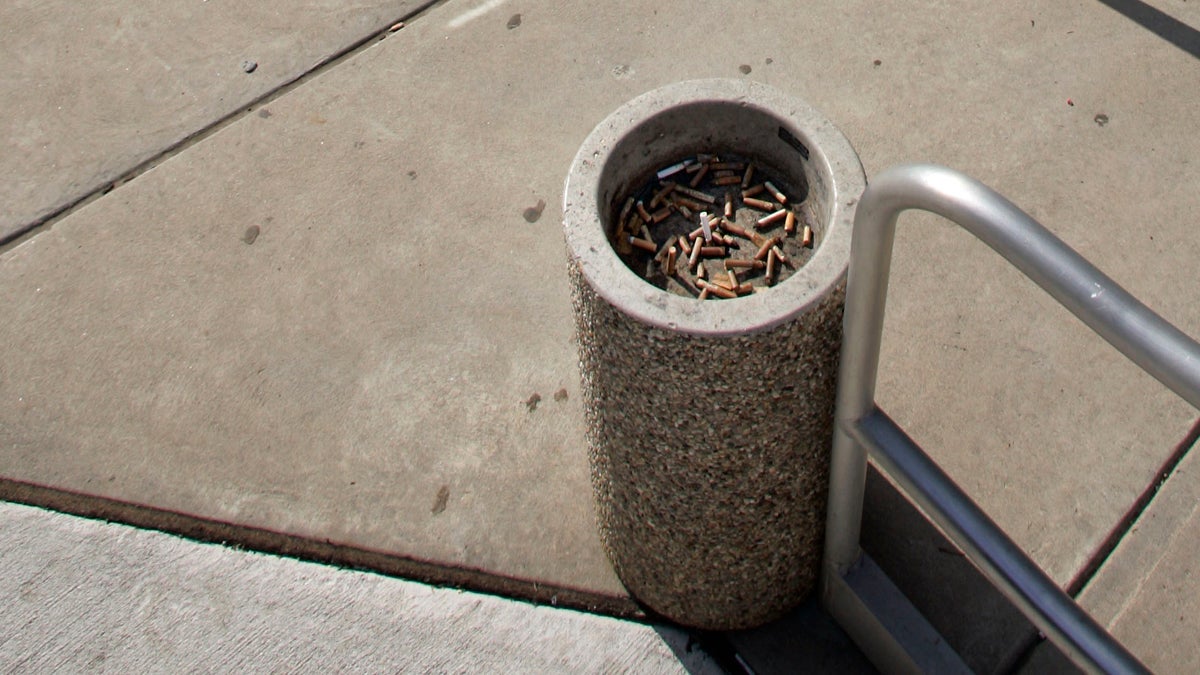Tobacco expert makes a case for banning the butts at Penn

When West Chester University of Pennsylvania went somke-free in 2008, cigarette urns like this one became a thing of the past on Campus. The University of Pennsylvania may go the same route. (AP Photo/Tom Mihalek, file)
Nearly 2,000 colleges and universities across the country have become smoke-free campuses, prohibiting smoking inside and outside.
University of Pennsylvania officials, who are considering such a move, brought in tobacco researcher Cliff Douglas Wednesday to discuss the effect of banning cigarettes.
“Research shows very clearly that when these policies are put in place, tobacco use rates drops,” said Douglas, who heads the Tobacco Research Network at his university. “In fact, they actually show reduced emergency room admissions for cardiac arrest. It has a direct health impact on the community.”
The University of Michigan is a smoke-free campus, and Douglas says one of the lessons learned in the course of banning the butts there is that the measure shouldn’t be seen as punishment for smokers.
“The idea here really is to support people, and for the high percentage of smokers who say they would like to quit, to offer support for that process, and to make it as easy as possible,” Douglas said.
About 11 percent of the students and 10 percent of Penn’s staff smoke. If all the employees who smoke quit, it would save the university $10 million a year in health care costs and lost productivity, university officials said.
WHYY is your source for fact-based, in-depth journalism and information. As a nonprofit organization, we rely on financial support from readers like you. Please give today.


